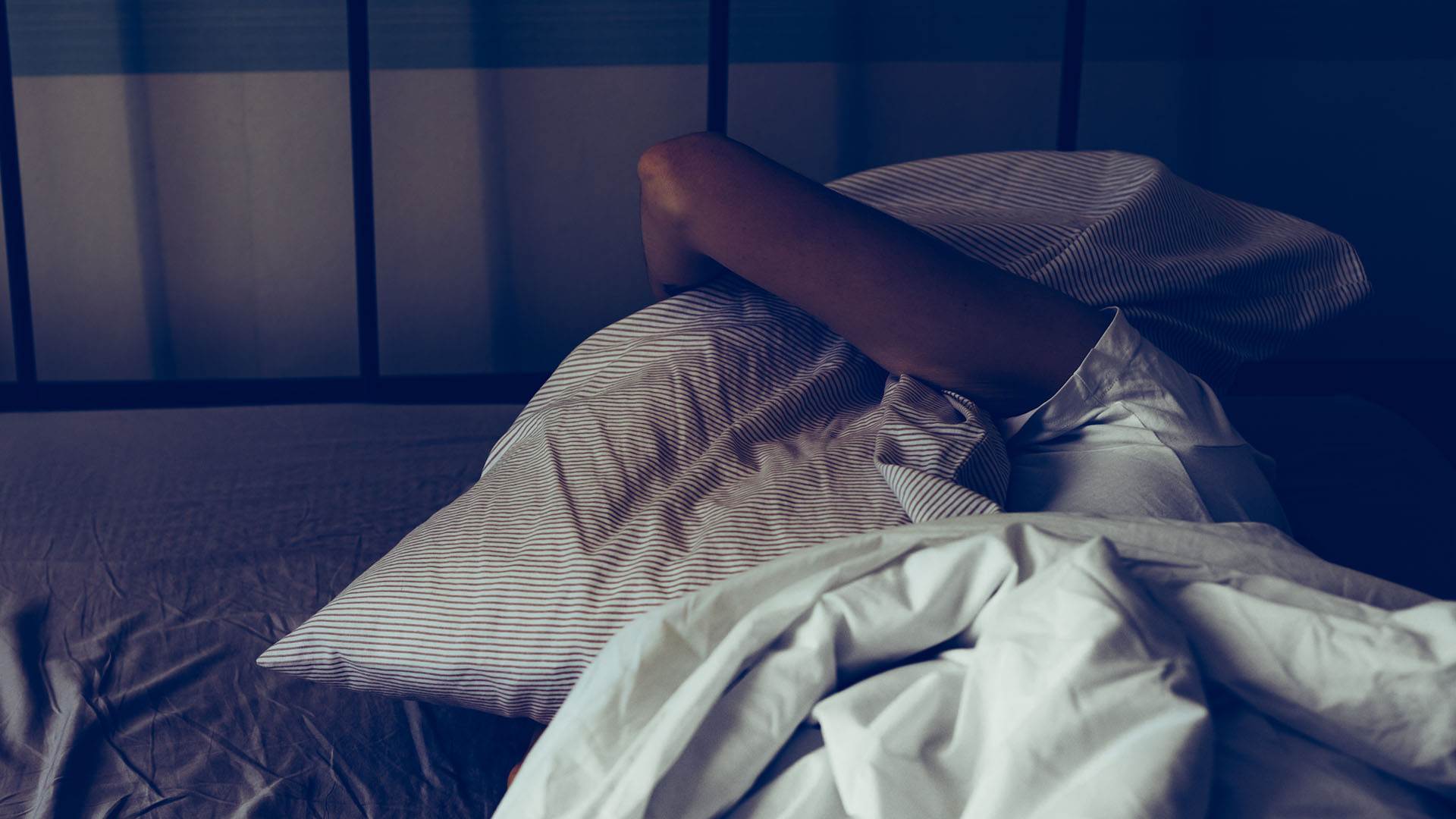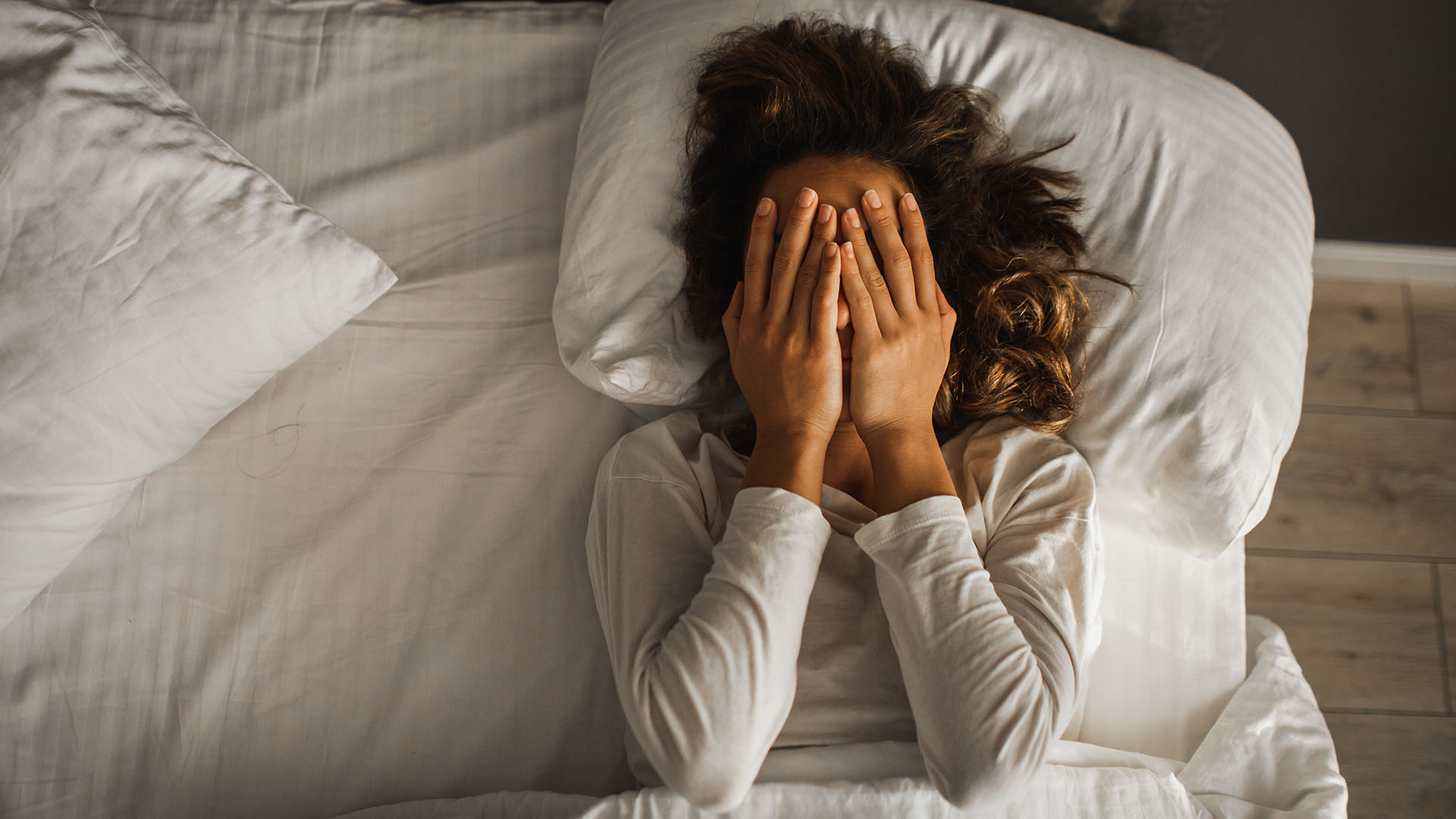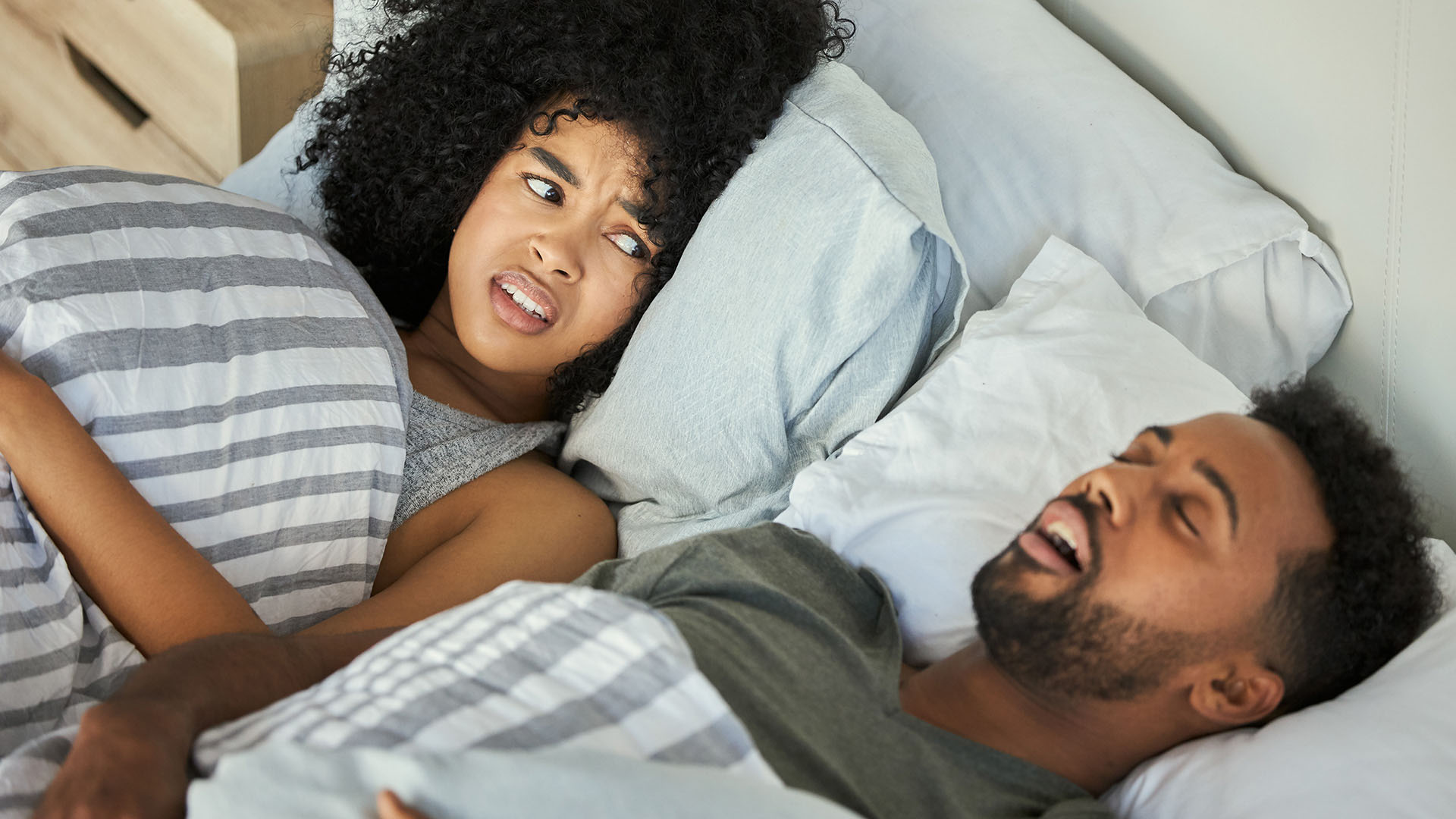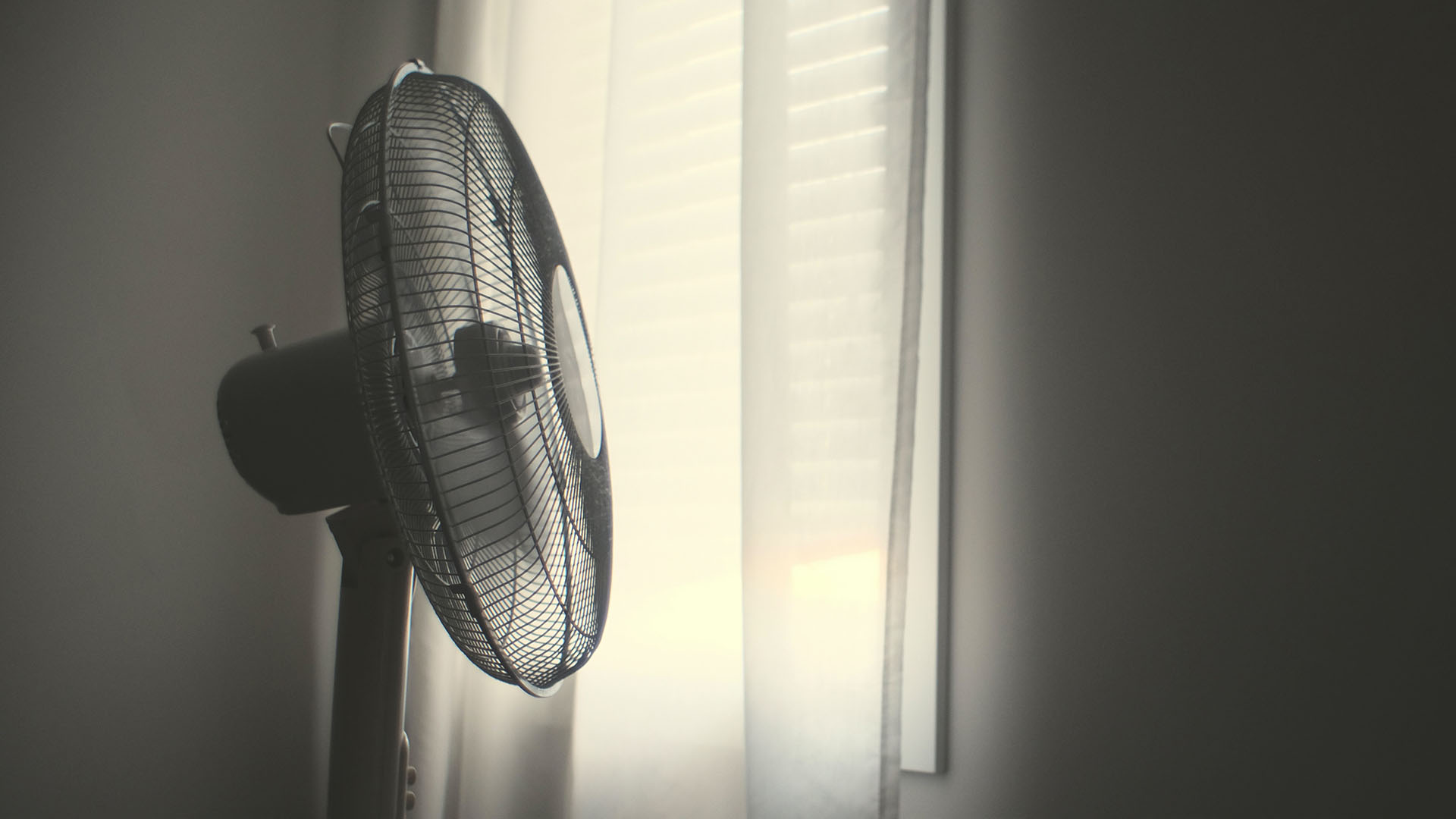How does white noise help you sleep?
A sleep science physician explains the potential benefits of white noise at night, and takes a look at the science behind it

Even if you do your best to optimize sleep hygiene, certain factors can still hinder your ability to get a good night's rest. While you may get into bed at the same time each night and avoid alcohol, caffeine, and eating shortly before bedtime (as per the 10-3-2-1-0 sleep rule), but what about your sleep environment?
You might have put up blackout blinds to keep the light out and invested in the best mattress for your sleep style, but there are other external disturbances that can stand in your way of falling and staying asleep.
On this point, noise is a key disruptor of achieving quality rest. Perhaps your bed partner snores, your walls are thin, or if you live in a loud neighborhood or urban environment. If noise pollution is getting in your way of achieving high-quality sleep, it may be worth integrating white noise into your bedtime protocol. But is white noise actually proven to help you sleep—and if so, how?
In search of answers, we consulted Meeta Singh, MD, a board-certified physician and psychiatrist specializing in sleep science.
What is white noise?
"White noise is often used as a background sound to mask unwanted sounds, improve concentration, or aid sleep," Dr Singh explains. "White noise is a random signal that has a flat power spectral density, meaning that it has the same amount of energy at every frequency."
She says that it's similar to white light (which combines all colors) in that both contain all frequencies at equal intensity. Examples of white noise include sounds from a fan, a radiator, an air conditioner, and TV static.

How might white noise help you sleep?
Since white noise (aka broadband sound) offers a steady, indistinct sound, Dr Singh says that it can tune out other noises and thus promote relaxation. "White noise can mask other sounds that might disrupt sleep, such as traffic, snoring, or a neighbor's TV," she shares. "By creating a consistent, low-level sound, white noise can make other sounds less noticeable, helping you sleep more soundly."
Moreover, many people find the steady hum of white noise to be soothing or calming. "It can help promote relaxation and reduce stress, which can make it easier to fall asleep and stay asleep," she adds.

Nighttime noise pollution is a major cause of sleep disturbances, which can trigger adverse effects for your health. Per a 2014 review in the journal Sleep Science, nocturnal environmental noise "provokes measurable biological changes in the form of a stress response, and clearly affects sleep architecture, as well as subjective sleep quality."
Disrupted sleep caused by unwanted noise can also lead to daytime fatigue, irritability, mood swings, weakened cognitive performance, and a decreased sense of overall wellbeing. If you're trying to sleep somewhere new, the effect can be exacerbated by something called the first night effect. Due to white noise's ability to shield unwanted sounds and enhance feelings of relaxation, it has the potential to support a quieter, calmer sleep environment, wherever you might be.

Dr. Meeta Singh is a board-certified physician focused on the applied science of sleep: improving sleep health with the aim of enhancing physical and mental health.
Does white noise really help you sleep?
As attractive as the aforementioned perks sound, the research on the benefits of white noise for sleep is mixed. According to a 2021 entry in Sleep Medicine Reviews, studies on white noise for sleep are, at present, of too low quality to conclusively advocate for its use. "The authors conclude that further research is necessary in order to widely recommend white noise as a sleep aid," Dr Singh shares. "They also note that in some instances, white noise can disturb a person's sleep and may affect their hearing."
However, there are studies that show positive results. For instance, a small study in 10 adults living in New York City found that the use of a white noise machine significantly improved sleep, based on both subjective and objective measurements. Another study on 18 healthy adults found that the administration of broadband sound reduced sleep onset latency (the time it takes to fall asleep) by 38 percent compared to a control of normal environmental noise.
All things considered, if you struggle to fall or stay to sleep due to exposure from unwanted sounds, white noise may help. However, effects may vary from one person to the next, and research is divided on how much it can truly help to enhance sleep.

What other types of noise might help you sleep?
As popular as white noise is for sleep, other types of 'colored' noise—including pink noise and brown noise—may be valid options, as well. There's also green noise for sleep, which is good for anyone who enjoys calming nature sounds.
Pink noise
Pink noise contains all audible frequencies, yet offers more power in lower frequencies. Examples of pink noise include sounds from a waterfall or wind. According to a 2022 review on external auditory sleep aids in the journal Sensors, pink noise may even be more preferable and pleasant than white noise since it's softer and more soothing. Some research shows that pink noise can reduce the time it takes to fall asleep, as well as the time it takes to fall into deep sleep.

Brown noise
Brown noise (aka red noise) has higher intensity at lower frequencies compared to white noise and pink noise, offering a deep, rumbling sound. Examples of brown noise include sounds from heavy rainfall or a shower. Brown noise may sound more natural, which may be preferable for some in their quest to promote better sleep. However, more research on the effects of brown noise for sleep is needed.
How can I use white noise for sleep?
Interested in trying out white noise for sleep? Dr Singh shares a few options to add it into your nighttime rotation:
White noise machines: "There are many different types of white noise machines available on the market, ranging from simple, portable models to more advanced devices with multiple sound options," she shares. The right option for you will typically depend on your budget and desire for enhanced features, such as a sleep timer and the sources, types, and quality of sound offered.
Smartphone apps: Apps that offer white noise may be a more cost-effective option than a white noise machine.

DIY white noise: Again, white noise can come in the form of a fan, radiator, or air conditioning unit. You may also sleep with white noise already if you run an air purifier in your bedroom overnight.
No matter which option you choose, Dr Singh recommends experimenting with different sounds and volumes as needed to find the best fit for you. "Some people prefer a high-pitched, whirring sound, while others find a lower, rumbling sound more soothing," she explains. "Try out different options until you find the one that helps you relax and drift off to sleep more easily."
Sign up to get the BEST of Tom's Guide direct to your inbox.
Get instant access to breaking news, the hottest reviews, great deals and helpful tips.
Michele Ross is a freelance writer based in Los Angeles. For Tom's Guide and TechRadar, she interviews medical experts for sleep tips and tricks, as well as reviews mattresses and toppers to see which ones are truly worth buying for different types of sleepers and budgets. She has also covered a range of sleep topics for publications and brands including Well+Good, HUM Nutrition, and Mini Bloom, among others.

